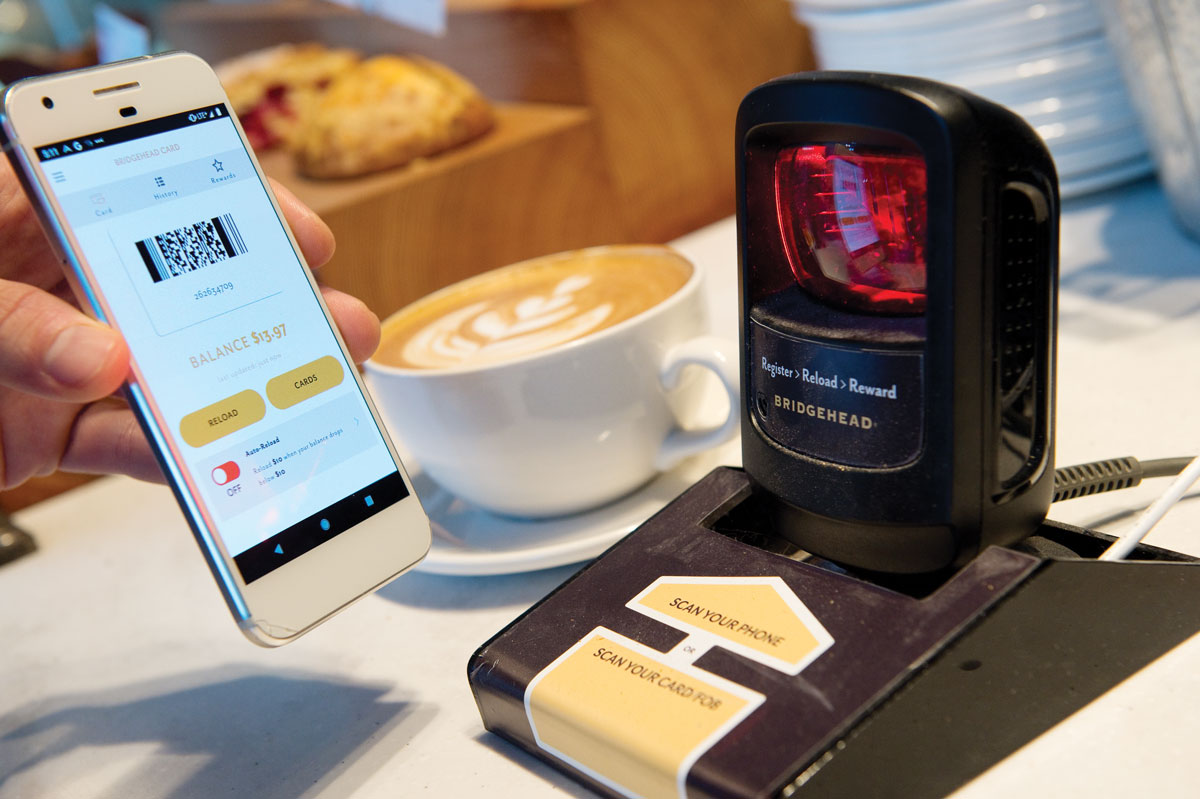Following a banner year that saw his firm’s user base grow 300 per cent, the co-founder behind an Ottawa app maker says the company’s local foundations set it up for international success.
Spoonity, founded in 2011, is a 15-person firm developing loyalty and payment programs for restaurants and grocers. The company has received some financing along the road from angel investors and the Toronto-based MaRS Investment Accelerator Fund.
Chief executive Max Bailey tells OBJ the firm’s early success came from its first major deal with a notable local brand, Bridgehead Coffee.
(Sponsored)

From Davos to WGS: The new mindset of global capital, and what it means for Ottawa
Dr. Anirudh “AK” Kumar sits in CarMa’s headquarters at the ByWard Market, still visibly energized despite having landed from Dubai less than 24 hours ago. The founder and CEO of

Powered by passion, backed by Ontario Made: Turning bold ideas into entrepreneurial success
Back in the winter of 2018, a brutal cold snap dropped temperatures in Merrickville to -46°C. Michael J. Bainbridge and Brigitte Gall looked outside and told their holiday visitors to
He recalls working with the Ottawa chain’s CEO, Tracey Clark, around 2013 on an application that could integrate Bridgehead’s point-of-sale system with a loyalty program, all while flying the coffee shop’s own banner.
“It was a tremendous success right out of the gate,” Bailey says, noting that the program handled some half a million transactions in the first six months.
Spoonity’s reputation grew steadily across Ottawa and soon the rest of Canada. Today, the company counts local mainstays such as Kettleman’s Bagels, Farm Boy and Pure Kitchen among the customers using its turnkey mobile app, which now processes some 55,000 transactions daily. National brands, including Pita Pit, are also using Spoonity’s white-label application for their own programs.
If there’s one brand that stands above the rest in the restaurant loyalty industry, according to Bailey, it’s Starbucks.
The Seattle-based coffee giant’s loyalty program, which gives out free birthday drinks just for signing up and honours its most dedicated customers with a custom gold card, has been the subject of numerous case studies exploring what provides the most rewarding returns.
Bailey says Spoonity’s approach has been to offer smaller chains – the ones that can’t afford the Cadillac of custom-made apps – a “comparable program” for a few hundred dollars a month.
“Starbucks created a very successful loyalty program. It’s considered to be the gold standard in the industry, but they invested millions of dollars in producing that program and a lot of other merchants don’t have the same resources to produce something like Starbucks did,” he says.
The discount approach appears to be catching on with users as well. Over the course of 2018, the base of customers using some variation of Spoonity’s app quadrupled from two million to eight million total users.

Technical hurdles
While its Canadian success has set a foundation for the firm, Bailey attributes Spoonity’s recent growth to its international expansions.
Roughly 18 months ago, Spoonity started focusing on growing its global presence, entering international markets such as Latin America, the Middle East, Australia and New Zealand.
While North American markets are becoming saturated with customer loyalty programs, Bailey says there’s a strong appetite for what Spoonity’s serving around the world.
“We found the technology that we built here in Canada is something that other markets don’t have access to.”
Spoonity CEO Max Bailey
“The company is growing quite rapidly in international markets. We found the technology that we built here in Canada is something that other markets don’t have access to,” he says.
The main hurdles Spoonity faces going abroad are likely familiar ones to app developers. While getting support in multiple languages and moving money across borders are common business headaches, it’s the technical details on which Spoonity is spending a great deal of time.
In the same way any mobile app maker has to ensure their product works across the iPhone’s numerous versions and operating systems, Spoonity also has to ensure its back end can work with a variety of international credit card processors, for example.
“It’s not a one size fits all when it comes to technology or most products, and it’s certainly no different in our industry,” Bailey says.
“Making the technology capable of catering to those markets is important … and those are hurdles that we need to work through as we’re expanding in that market.”
Bailey says he sometimes sits back and laughs from the company’s offices on Richmond Road, remarking at how the conversations they’re having would only ever happen there. Targeting the needs of a single region in a specific industry can make for some very niche demands, but that’s part of the fun in designing for a global user base, he says.
“From the outside, it seems so simple and straightforward,” Bailey says. “There are lots of little nuances that you need to be aware of and working to resolve in order to make it available to a larger audience.”
Bailey says the Spoonity team is looking to double in size to 30 people by the end of 2019.





